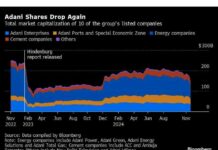US Core CPI Forecast: Goldman Sachs Predicts July Numbers Below Estimates
The upcoming release of the US CPI report on Wednesday is eagerly anticipated by market participants as it will provide valuable insight into the state of price pressures in the economy. According to Goldman Sachs, the core CPI is expected to come in at 0.16%, which is below the consensus estimate of 0.2%. This forecast suggests that inflationary pressures may be moderating, a trend that could have important implications for monetary policy and financial markets.
Goldman Sachs’ forecast is based on a detailed analysis of various components of the CPI basket. One notable trend is the decline in core goods prices, which are expected to decrease by 0.11% month-on-month. This decline is partially offset by an increase in services prices, which are forecast to rise by 0.23%. One of the key drivers of this increase is owners’ equivalent rent, which is expected to rise by 0.29%. Additionally, hotel prices are projected to increase by 0.50%, reflecting strong demand in the hospitality sector.
Another significant driver of the expected increase in core CPI is car insurance prices. In recent months, there have been reports of steep renewal rates for car insurance policies, causing financial strain for many Americans. Goldman Sachs believes that there is still some catch-up effect at play in the data, leading to a forecasted increase of 0.7% in car insurance prices. This highlights the importance of monitoring insurance costs as a key component of overall inflationary pressures.
Implications for Monetary Policy
The forecasted moderation in core CPI numbers has important implications for monetary policy. The Federal Reserve closely monitors inflation data as part of its mandate to promote price stability and full employment. A lower-than-expected core CPI reading could provide the Fed with more room to maintain its accommodative monetary policy stance, including low interest rates and asset purchases.
If inflationary pressures continue to ease, the Fed may be less inclined to tighten monetary policy in the near term. This could be welcomed by financial markets, as it would support continued economic growth and investment activity. However, policymakers will need to remain vigilant for any signs of renewed inflationary pressures, which could necessitate a shift towards a more hawkish policy stance.
Market Reaction
The release of the CPI report on Wednesday is likely to have a significant impact on financial markets. Investors will scrutinize the data for any signs of inflationary pressures, which could influence their expectations for future interest rate hikes. A lower-than-expected core CPI reading could lead to a rally in bond markets, as it would reduce the likelihood of the Fed tightening monetary policy in the near term.
Conversely, a higher-than-expected core CPI reading could lead to a sell-off in bond markets, as investors price in a higher probability of interest rate hikes. This could also put pressure on equity markets, as higher interest rates tend to dampen corporate profits and consumer spending. Overall, the CPI report will be closely watched by market participants for clues about the direction of monetary policy and the outlook for inflation.
In conclusion, the forecasted core CPI numbers from Goldman Sachs suggest that inflationary pressures in the US economy may be moderating. This has important implications for monetary policy, financial markets, and the overall economic outlook. Investors will be closely monitoring the release of the CPI report on Wednesday for any signs of inflationary pressures, which could influence their investment decisions.






















